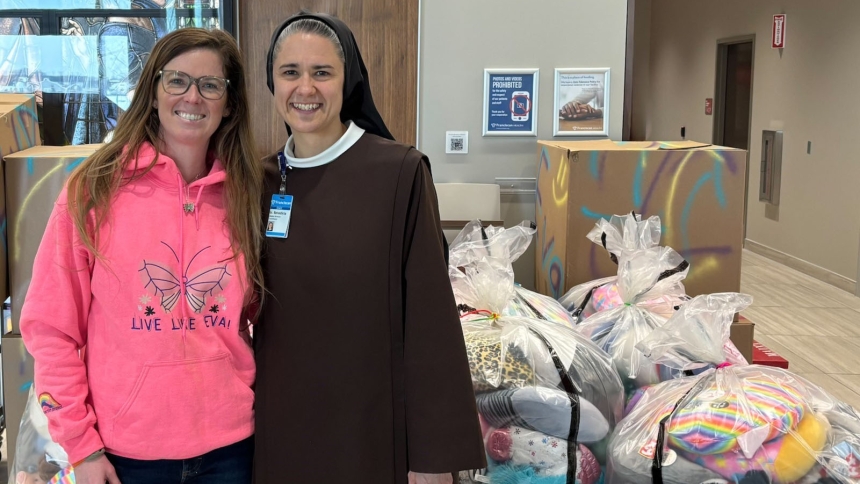
As published in the Northwest Indiana Catholic on November 26, 2017
Just this past Saturday, the Church beatified Father Solanus Casey, a Capuchin priest who was born on a Wisconsin farm in 1870, discerned a vocation to the priesthood, eventually joined the Capuchin Franciscans, was ordained to the priesthood in 1904 and died in Detroit in 1957. Because of his limited academic abilities, Solanus was ordained a “simplex” priest, which meant he could not preach or hear confessions. He accepted this limitation humbly and allowed God to use his him in a beautifully different way.
In many Capuchin friaries in both New York and Michigan, Father Solanus served as the porter, the one who would answer the door, attending to the needs and requests of the many people who would come looking for prayers, food, advice and consolation. Father Solanus would listen to all with attention, love and compassion, tirelessly visiting the sick and the poor, praying with the distressed and helping everyone in need.
The fruit of his ministry was astounding! People experienced dramatic conversions, miraculous healings and providential resolutions of difficulties and problems. He corresponded with thousands of people throughout the world.
Over 20,000 people passed by the casket of Father Casey when he died in 1957, a profound tribute to the impact he had on so many lives. When his body was exhumed in 1987, it was found to be incorrupt, as has been the case with many saints throughout the centuries. Father Solanus Casey reminds us that often the simple, humble, hidden person is the great saint, the one overlooked, the one answering the door, the one not considered important or smart enough.
Father Stanley Rother, a diocesan priest from Oklahoma, was beatified this past September. Born in 1935 on a farm, Stanley felt called to the priesthood, but like Father Solanus, he struggled with the academics. His superiors saw the zeal in his soul, however, and helped him persevere. Ordained a priest in 1963, Father Rother served in diocesan parishes until 1968 when he went to a mission in southern Guatemala to serve among the indigenous peoples. Learning both Spanish and the tribal language, Father Stanley spent himself in this challenging mission, working for the spiritual growth as well as the human development of the poor.
Eventually threatened with death by leftist guerillas who viewed him as an American interloper, Father Rother chose to remain with his people, reminding those who feared for his life that a shepherd’s place was with the flock.
In 1981, assassins entered his rectory and shot Father Stanley twice in the head. A martyr for justice and mercy, this heroic priest stands as an example of Jesus, the courageous shepherd who lays down his life for his sheep. His strength and love shine forth in a life given to the proclamation of the Gospel, even unto death.
During the bishops’ meeting in Baltimore last week, Bishop Robert Gruss of Rapid City, South Dakota formally petitioned for approval for the introduction of the cause of sanctity for Black Elk, a Lakota Native American. Born in 1863 in present day Wyoming, Black Elk experienced deep mystical visions as a child, which set him apart as a future medicine man of his tribe. Present at the epic battles of the Little Big Horn in 1876 and Wounded Knee in 1890, he witnessed the marginalization and genocide of his people by the United States. These years were tragedies of violence, starvation, murder and the wholesale destruction of an entire culture.
Black Elk converted to Catholicism in 1904, becoming a renowned and effective catechist who evangelized and formed hundreds of his fellow tribesmen and women in the faith. His spirituality blended the beauty of his native religion with the truths of Catholicism. Eventually living on a reservation, Black Elk served as a transitional figure to his people, a Christian prophet whose spiritual vision upheld the dignity and worth of the native peoples of this land. He died in 1950.
These three very different people - Solanus Casey, Stanley Rother and Black Elk - stand as contemporary witnesses of the powerful call of God in our lives. Each had profound struggles, witnessed deep suffering, courageously accepted painful limitations and lovingly persevered in radical fidelity to the Lord, as they embraced the unfolding of their vocation in the Church. Each ended up in a very different place and circumstances from where they started. They stayed the spiritual course, accepting the particular reality of their lives as the sacred space in which God was calling and using them to serve and save others.
We do not need to imitate the circumstances, personalities or temperaments of the saints. In fact, we cannot because we are not them. God calls us, however, to be the unique saint of our own destiny, the person of integrity, wholeness and holiness he has dreamed of from the beginning.
When we drink deeply of the Father’s love, encounter the tender mercy of Jesus and surrender to the purifying fire of the Holy Spirit, we awaken to new possibilities of spiritual growth, mystical vision and sacrificial service.
This journey of the heart that kept the saints from ever becoming stagnant or complacent is the authentic meaning and adventure of human existence. It is ours to embrace and make our own.
+ Donald J. Hying



